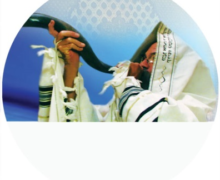Israel 21c’s top 10 stories of 2012
2012 was a year of innovation and progress. To celebrate the New Year, ISRAEL21c looks back at the top stories of the year.

If you read the world’s newspapers, you’d be forgiven for thinking that the only things happening in Israel this year were security related: the looming threat of a conflict with Iran, missiles from Gaza and unrest on Israel’s borders. The pages of ISRAEL21c, however, tell a completely different story.
Imaginative, exciting and dynamic – Israelis were at the forefront of cutting-edge developments in hundreds of different fields this year, pushing the boundaries in art and culture, biotech, medicine, the environment, science and technology.
Already famous for their technological innovations, Israeli companies brought dozens of groundbreaking new technologies to market, from inventive mobile apps to cardboard bikes, invisible keyboards and technology that can protect our runways.
Israeli physicians and researchers were just as hard at work, making significant breakthroughs in cancer, Alzheimer’s, diabetes, infertility, viruses and asthma.
From prizes in medicine and science, to awards for developments in the fields of world hunger, solar energy, desertification and water reclamation, Israeli entrepreneurs gained worldwide recognition.
Israel was also there to help in the wake of global disasters, from Haiti to Kenya, Ghana to Japan. When Hurricane Sandy devastated the US east coast, Israelis were among the few foreigners to send aid.
It was also a year when Israel itself came into the spotlight. Tourism rose to its highest level as visitors came to enjoy the country’s hugely varied landscape.
National Geographic magazine called the Israel National Trail, stretching 1,000 kilometers from the Red Sea to Israel’s northernmost point, one of the “holy grails of trails across the world.” Lonely Planet chose the Negev Desert second on its top 10 list of regions to visit in 2013.
Tel Aviv won many accolades….The Huffington Post named it among the eight Best Beach Cities in the world. The Globe and Mail listed it as one of the world’s most creative cities, MasterCard named Tel Aviv among the world’s top destinations in 2012, Travelers Digest announced it was home to the most beautiful people in the world, and Condé Nast dubbed it one of the best cities for architecture.
To help you relive an exciting year of development and culture, ISRAEL21c brings you its top 10 most-read stories of the year, giving you a small taste of how a tiny country in the Middle East is helping to change the world.
1. Made in Israel – the Top 64 innovations developed in Israel
To celebrate Israel’s 64th birthday, ISRAEL21c put together a list of the top 64 developments that have come out of Israel since it was founded.
Most people already know that the ubiquitous Disk-on-Key was developed in Israel, but did you know that Windows NT and XP operating systems were primarily developed here? We take a look at some of the country’s best innovations, from Copaxone and Sambucol, to the emergency bandage, Krav Maga, Magshoe, desalination, instant messaging and the Powermat.
To mark the anniversary, ISRAEL21c created a special “Made in Israel” video, and went into partnership with Nu to create a Made in Israel t-shirt featuring some of the nation’s best developments.
2. New Israeli tactic makes deadly viruses commit suicide
In September we ran a story on Vecoy Nanomedicines, a biotech company that has developed a cunning new way to disarm viruses by luring them to attack microscopic, cell-like decoys. Once inside these traps, the viruses effectively commit suicide.
Today viruses are considered one of the biggest threats to humankind. In 1918, a Spanish flu outbreak killed 40 million people in two years. A new super virus could wreak even worse havoc in today’s uber-connected world, experts fear. There’s still a long road ahead, but Vecoy may have developed the solution that will keep us safe.
3. Space age rapid transit debuts in Tel Aviv
It sounds like something out of a science-fiction movie, but if all goes well, within two years Israelis will be the first to try out a futuristic rapid transport system designed by NASA’s Ames Research Center in California.
The software-guided personal transport pods, designed for two, drive along a guide rail suspended from existing power lines. Magnets in the vehicle create a magnetic field around the metal coil inside the rail, causing the vehicle to lift up and glide 60 miles per hour on a cushion of air.
The system uses very little energy and potentially could be powered entirely by solar panels. The goal is to build a pilot project in Israel, and then take it worldwide.
4. Top 12 ways Israel feeds the world
As the world population soars and food production dwindles, food security is becoming a major global concern. No other country in the world has contributed more breakthroughs in this field than has Israel.
From drip irrigation to grain cocoons that can keep water and air out of stored crops, from biological pest control to fish farming in the desert, better strains of crops and the most advanced dairy farming techniques on the planet, Israel is leading the way, pioneering advances that could potentially keep our world from starvation.
5. Cardboard wheelchair to roll out from Israel
The inventor, Israeli entrepreneur Nimrod Elmish, started out with a low-cost cardboard bicycle made from recycled materials, but when a leading charity asked if he could also make a cardboard wheelchair, he realized it was a perfect match for his innovative technique.
Now his company, I.G. Cardboard Technologies, has entered into an agreement with an international non-profit to set up a $6 million factory for the production of cardboard wheelchairs in Africa.
The cost of these wheelchairs, which are made of recycled cardboard, plastic bottles, and recycled tires, is likely to be in the region of $10 each.
What’s next? Cardboard toys, wagons, chairs for airplanes, and yes, even cars.
6. Israeli ice device destroys breast tumors
For nearly two years, a novel Israeli medical device has been changing the way American doctors remove fibro-adenoma tumors – benign breast lumps. Now the device, developed by IceCure Medical, is being tested for small malignant tumors as well.
During an ultrasound-guided procedure, the IceSense3 probe penetrates the tumor and destroys it by engulfing it with ice. Needing only local anesthetic, the cryoablation process takes up to 10 minutes in a doctor’s office, clinic or breast center, and the patient can get up and leave afterward. No recovery period or post-care is necessary.
7. New blood test offers early cancer detection
Israeli researchers have developed a simple and cheap blood test that was found to provide early detection for many types of cancer in clinical trials.
The promising new test, developed by scientists at Ben-Gurion University of the Negev and Soroka University Medical Center in Beersheva, can detect minuscule changes in the blood of a person with a cancerous growth somewhere in the body, even before the disease has spread.
Early diagnosis of cancer could save thousands of lives. Every day in the United States alone, 1,500 people die of cancer, according to the American Cancer Society. Early detection greatly increases the chances for successful treatment.
8. Revolutionary Israeli toilet gets Gates Foundation grant
It’s an invention that could transform the developing world. Israeli company Paulee CleanTec has developed a toilet that needs no water, leaves no waste, and is powered by solar energy.
The toilet, which won funds from the Bill & Melinda Gates Foundation, turns solid waste – including toilet paper – into odorless, sterile fertilizer in 30 seconds. The fertilizer is automatically dropped into a removable canister and can be used on crops.
Liquid waste will be sterilized separately and then used as gray water to flush the toilet.
The Gates Foundation believes that a reinvented toilet could save millions of lives. Some 1.1 billion people don’t use a toilet, and about 80 percent of human waste goes into rivers and streams untreated.
9. Non-invasive tool identifies brain disorders
One in three people suffers from a brain-related disorder such as Alzheimer’s, Parkinson’s, ADHD, chronic pain or depression. But because of the complexity of the human brain, blood tests and imaging are of limited value for diagnosis or documentation of treatment.
The Israeli company ElMindA could revolutionize this field by opening a new window into how the brain works. Its non-invasive BNA (brain network activation) technology, which expects FDA approval early in 2013, has shown promise in clinical studies.
The procedure is simple and painless. Patients sit at a computer for 15 to 30 minutes, performing a specific task many times while the device maps network activation points in the brain. The result is a three-dimensional image of nerve cell connectivity and synchronization that is highly sensitive, specific and reproducible.
The tool is sensitive enough to show subtle differences in the severity of the condition from one day to another. It can also optimize drug dosing by monitoring the changes in brain network activities as the drug takes effect.












